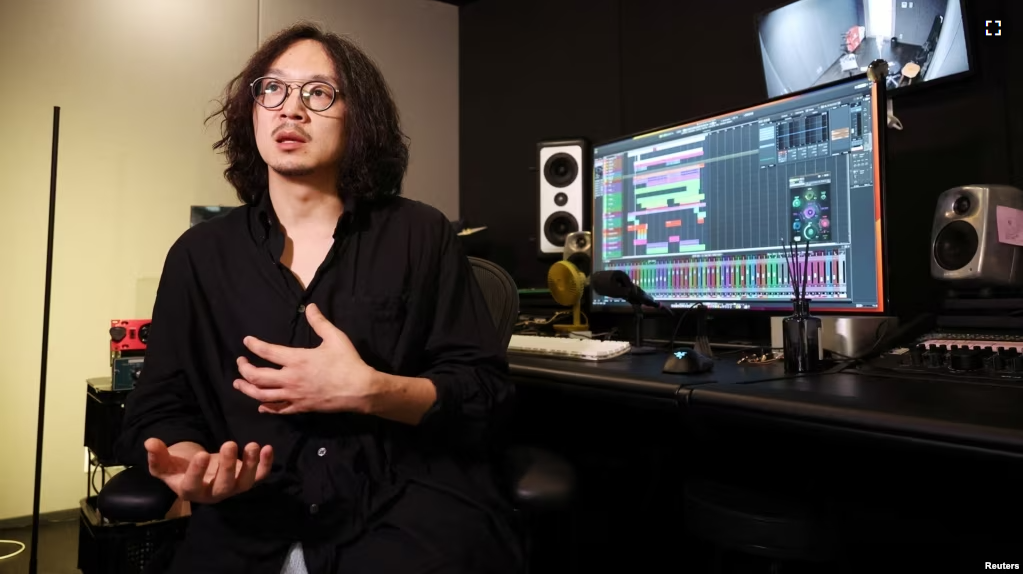A South Korean music production company is using a method of artificial intelligence (AI) to create different language versions of pop music songs.
The company using the method is HYBE. The company represents and produces music for some of South Korea’s top pop music performers. Korean pop music is also known as K-pop.
The AI method combines voice recordings of South Korean pop stars with recordings of song lyrics read by native speakers of other languages. The process aims to produce complete K-pop songs in multiple languages.
Officials at HYBE say the method does not change the singer’s natural voice. Instead, it uses AI to produce different language versions of the same song.
In May, the AI method successfully created a song by K-pop singer MIDNATT in six languages – Korean, English, Spanish, Chinese, Japanese and Vietnamese. The 40-year-old artist, whose real name is Lee Hyun, recorded the song Masquerade in each language.
Chung Wooyong is the head of HYBE’s interactive media department. He explained the creation process to reporters with Reuters news agency. He said the process involved dividing groups of sounds into separate elements. These included things like pronunciation, voice tone and sound level.
Wooyong added that the technical team’s members then “used their imagination” to see what kind of results they could get from the technology. HYBE says the “deep learning” method permitted a first in the music industry – releasing the same song in multiple languages at the same time.
The song is the latest sign of the growing influence of AI in the music industry. AI-produced music has been flooding online music services and social media in recent months. The American-based Grammy Awards recently introduced new rules for AI-created music. In general, the rules aim to protect the music of “human creators” over works created by AI systems.
Wooyong said HYBE is currently considering how to use the AI method in its future music production operations. He noted the technology could be provided to other music creators and the public. Wooyong did not say whether the company would charge others to use the system in the future.
MIDNATT said using the AI method had given him a “wider spectrum of artistic expressions.” He added, “I feel that the language barrier has been lifted and it’s much easier for global fans to have an immersive experience with my music.”
While the technology is not new, this method demonstrates a new way to use AI in music, said Valerio Velardo. He is the director of The Sound of AI, a Spain-based company that advises organizations on AI music and audio development.
Velardo added that he thinks such methods can help professional musicians and the general public in the future. “It’s going to lower the barrier of music creation,” he said. “It’s a little bit like Instagram for pictures, but in the case of music.”
For now, HYBE’s AI method takes “weeks or months” to do its job, said Masquerade producer Choi Jin-woo, who also uses the name Hitchhiker. However, he noted that when the process speeds up, it could serve a wider range of purposes, such as interpreting languages in video conferences.
I’m Bryan Lynn.
Reuters reported this story. Bryan Lynn adapted the report for VOA Learning English.
__________________________________________
Words in This Story
lyrics – n. the words of a song
pronounce – v. to make the sound of a letter or word
tone – n. the quality of a sound, especially someone’s voice
spectrum – n. all the different ideas, opinions, possibilities, etc. that exist
immersive – n. completely surrounding something
